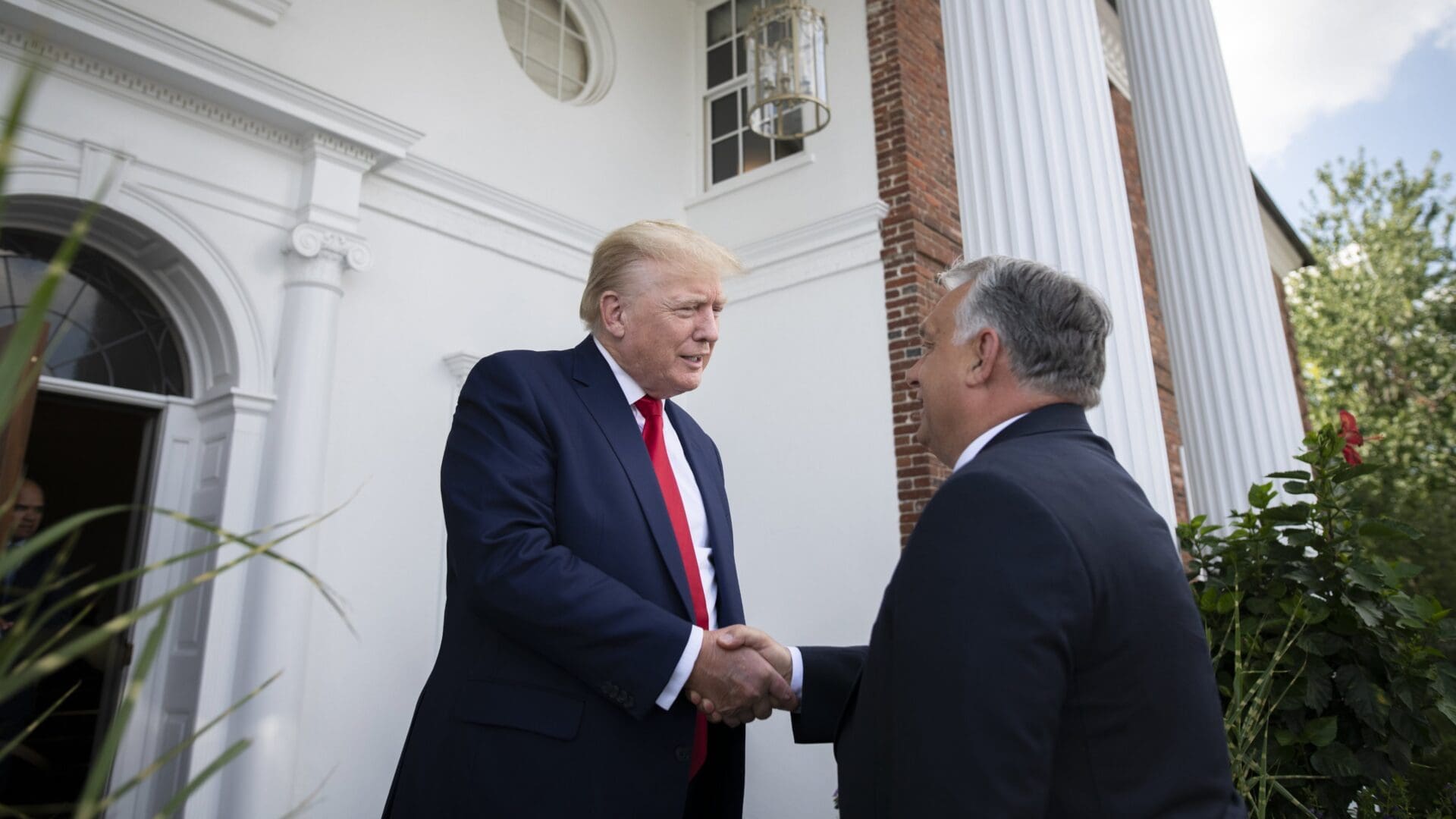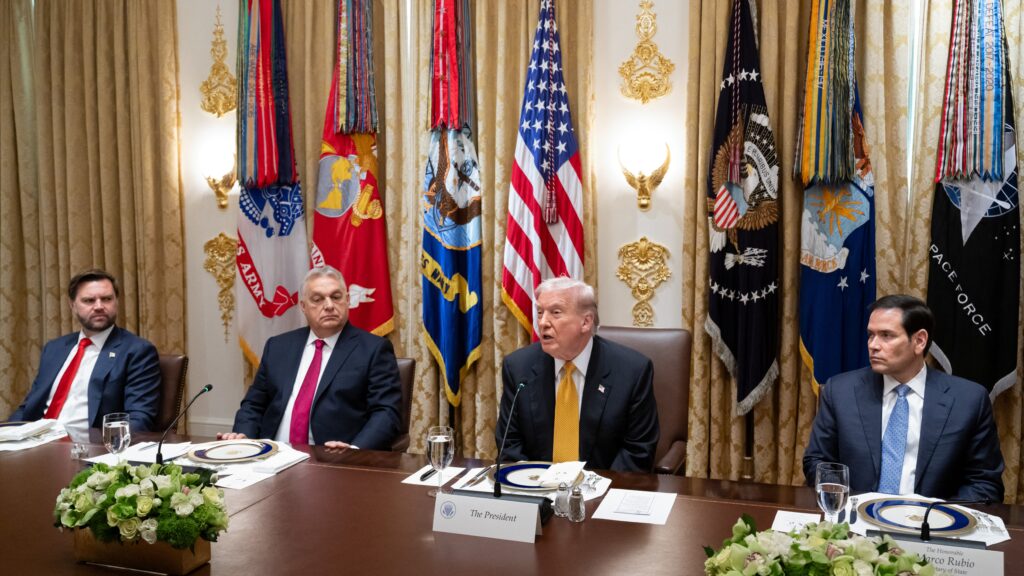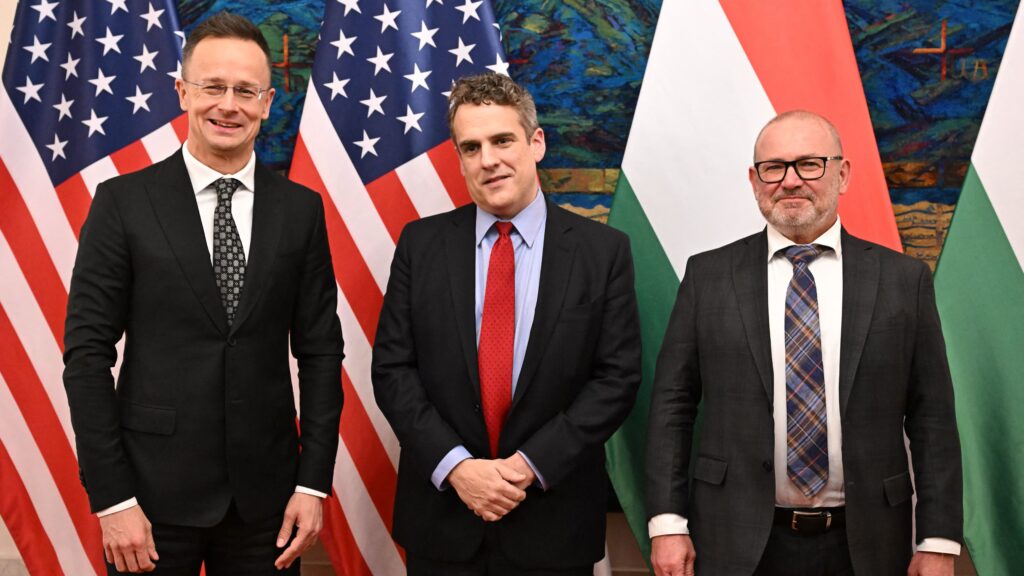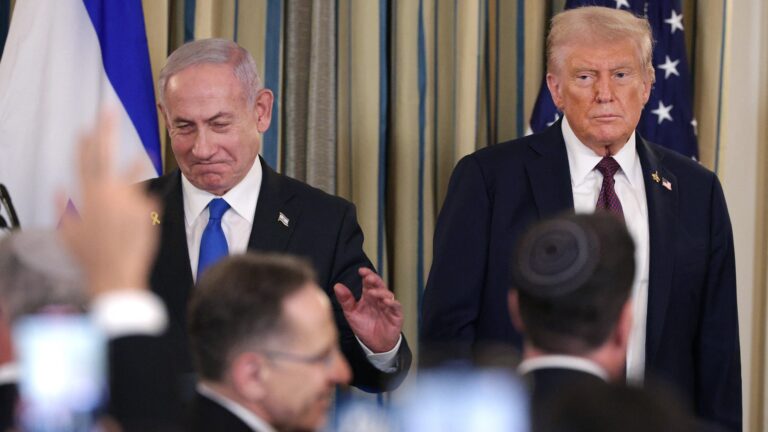Last week’s announcement of an upcoming meeting between Donald Trump and Viktor Orbán in Florida sends a strong signal of continued collaboration among the world’s conservative leaders and the continued merging of the transatlantic populist movement. With the U.S. presidential elections eight months away and polls showing Trump in a strong position to win a second term in office, this meeting will likely set the stage for drastic changes to the U.S.–Hungarian relationship in a second Trump term.
Unlike the current frosty relationship between the two governments, Orbán and Trump have been simpatico on a host of policy and cultural issues. Since Viktor Orbán’s endorsement of Donald Trump in 2016, Orbán has been Trump’s closest European ally. The two have forged a political bond based on a similar viewpoint of domestic politics and international world order: stopping illegal immigration, promoting conservative values, skepticism of foreign entanglements and promoting nationalism.
Much of the discussion of this partnership has centered around potential changes in foreign policy and those changes will be significant. Some of the obvious include
a new U.S. ambassador much more in line with Trump and Orbán’s governmental philosophy.
Another will likely be a reconfiguring of the priorities of U.S. agencies, specifically foreign-facing agencies such as USAID, formed in 1961 with a purpose of helping provide clean drinking water and basic developmental needs to the third world. Today, it is, according to its website, designed to ‘support more stable, resilient, and democratic societies.’ In other words, governments which the administrative state in Washington supports. Last year, USAID Administrator Samantha Power came to Budapest to show support for the Hungarian left-wing opposition and just a few weeks ago, several U.S. senators dropped by the Hungarian capital for another opportunity to confer with opponents of the Orbán government. One of those, Senator Jeanne Shaheen, later filed a resolution complete with leftist talking points about the status of democracy in Hungary.
Even when liberal U.S. senators are not coming to Budapest, they’re working to make life as difficult as possible for the Orbán government. In a bid to punish Hungary for not conforming to Biden Administration priorities regarding NATO and Ukraine, U.S. Sen. Ben Cardin, a Maryland Democrat and chair of the Senate Foreign Relations Committee even proposed sanctioning Hungary by suggesting the Biden Administration needs to consider whether Hungary should continue to participate in the U.S. Visa Waiver Program despite the fact that participation in the program has been based on meeting requirements related to law enforcement, immigration enforcement, border management and other factors such as visa overstay rates. Hungary’s overstay rate, by the way, is lower than that of Spain, Portugal and several other EU nations.
One of the first decisions necessary in a new Trump Administration will likely be
how to quickly end the Ukraine war,
and, looking further down the line, what limited role will NATO play in future conflicts among non-NATO members. Despite Donald Trump’s skepticism of European countries not paying at least 2 per cent of their GDP into defense, Hungary has surpassed the threshold at 2.43 per cent and will need to continue spending as further pressure builds on its borders from southern and eastern illegal immigration. In the longer-term perspective, will the Trump and Orbán administrations seek closer ties militarily, perhaps with the transfer of U.S. bases from elsewhere in Europe to a more agreeable ally?
In addition to foreign policy, this meeting can also set the stage for increased economic cooperation in the years ahead. While both governments support economic nationalism with manufacturing at home with a preference for domestic ownership, an incoming Trump Administration would mean significant changes from current Biden economic policy and rhetoric which will be positive for business links between the countries. How would a Trump presidency impact business?
An initial necessity will be repairing the Biden Administration’s decision to terminate the U.S.-Hungary taxation treaty. This change went into effect January 1 and upends 45 years of policy between the two nations. Putting an agreement into law will need to be a priority for both governments to protect business, employees and investors. According to U.S. Department of State, after Germany and Austria, the United States was the third largest investor in Hungary in 2020 with about 450 U.S. companies active in the country. The lack of agreement also affects Hungarian citizens earning a living in the United States.
In order for Hungarian-U.S. business ties to thrive in the next administration and beyond it is imperative that a direct airlink between the countries be established. Ferenc Liszt International Airport has 38 different airlines that fly directly to Hungary including from Africa, Korea and China. However, not one U.S. airline flies directly to Budapest. U.S. and European Airlines connect the gateway cities of the United States (NYC, Washington, Chicago, LA) with their counterparts in Europe (London, Paris, Rome, etc). However, flights also exist, at least seasonally, between less culturally and politically significant cities in Europe such as Prague and Bucharest to the United States.
The lack of direct air travel is a significant reason why U.S. tourism to Hungary lags behind many other European nations. According to the U.S. Travel and Tourism office data, in 2022 just under two per cent of American citizens who visited Europe came to Hungary. In the Trump Administration one of the goals was to move tourism beyond the gateway cities into small towns and rural America. Without direct flights, it becomes much more difficult for tourists to take additional time and inconvenience to board yet another flight to many smaller communities where greater numbers of conservatives live, such as Des Moines or Debrecen.
For conservatives of both nations, a Trump victory in November would be highly significant.
For Hungary, strengthening political and business relations with a key ally gives the country even greater leverage with its European counterparts and cements the Orbán government as the cornerstone for European relations with the United States for at least the next four years. For the United States, having not just an ally, but a friendly government in Europe with similar geopolitical aims that can act as a conduit to Russia and China will be exceedingly important for geopolitical and economic objectives.
Unlike eight years ago when a Trump victory rocked many European capitals and neither the incoming administration nor Europeans knew what to expect from such a relationship, this time there is no uncertainty. The meeting between the world’s conservative leaders will be the first of many necessary steps this year in building bridges for global conservative political policy and economic opportunity.







